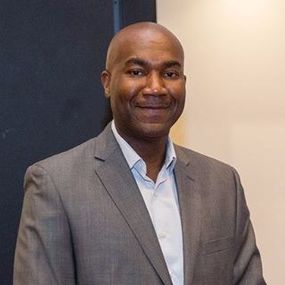Community Activism

Dr. Samuel Valme
Title: Realty Specialist Research Topic: The Power of Community Activism: Assessing How Three Activism Groups Influence Governance and Voter Participation in Henry County, Georgia
Institution: Walden University
Committee Chair: Dr. Billingsley
Abstract: Current research has shown that the representative democratic process is in jeopardy due to low voter participation. These studies demonstrate that voter turnout is heavily relied on by our electoral process to elect political leaders to positions at the federal, state, and local government levels. Few scholars have explored the problem of low voter participation using the quantitative method. This study examines the impact that community activism groups have in influencing voter participation and their role in the overall political health of Henry County’s democratic process. The study’s theoretical framework is largely drawn from Meredith Rolfe’s conceptualization of conditional choice. Data consist of semi structured interviews of voters who are registered in Henry County. Registered voters who are most likely to be affiliated with three prominent grassroots organizations were interviewed. In addition, data from the U.S. Census Bureau and the state and county board of elections were reviewed in order to provide context to the information provided in the interviews. Data was analyzed using rich, thick, and detailed descriptions; direct interpretation; and development of categories. Emerging themes were verified using member checking to ensure credibility of findings. It was hopeful that the findings from the study indicates that a positive social and electoral change can occur in local communities if grassroots initiatives and civic and community activism groups better understand their effectiveness in increasing voter participation "in the communities they serve". The findings indicate that community activism groups may positively affect voter participation by engaging potential voters face to face to encourage and promote voting behavior in their communities.
The implications for social change deriving from this study included providing guidance on how community activism groups can promote practical electoral change in local communities, thereby increasing voter participation and their effectiveness in their communities.
Title: Realty Specialist Research Topic: The Power of Community Activism: Assessing How Three Activism Groups Influence Governance and Voter Participation in Henry County, Georgia
Institution: Walden University
Committee Chair: Dr. Billingsley
Abstract: Current research has shown that the representative democratic process is in jeopardy due to low voter participation. These studies demonstrate that voter turnout is heavily relied on by our electoral process to elect political leaders to positions at the federal, state, and local government levels. Few scholars have explored the problem of low voter participation using the quantitative method. This study examines the impact that community activism groups have in influencing voter participation and their role in the overall political health of Henry County’s democratic process. The study’s theoretical framework is largely drawn from Meredith Rolfe’s conceptualization of conditional choice. Data consist of semi structured interviews of voters who are registered in Henry County. Registered voters who are most likely to be affiliated with three prominent grassroots organizations were interviewed. In addition, data from the U.S. Census Bureau and the state and county board of elections were reviewed in order to provide context to the information provided in the interviews. Data was analyzed using rich, thick, and detailed descriptions; direct interpretation; and development of categories. Emerging themes were verified using member checking to ensure credibility of findings. It was hopeful that the findings from the study indicates that a positive social and electoral change can occur in local communities if grassroots initiatives and civic and community activism groups better understand their effectiveness in increasing voter participation "in the communities they serve". The findings indicate that community activism groups may positively affect voter participation by engaging potential voters face to face to encourage and promote voting behavior in their communities.
The implications for social change deriving from this study included providing guidance on how community activism groups can promote practical electoral change in local communities, thereby increasing voter participation and their effectiveness in their communities.